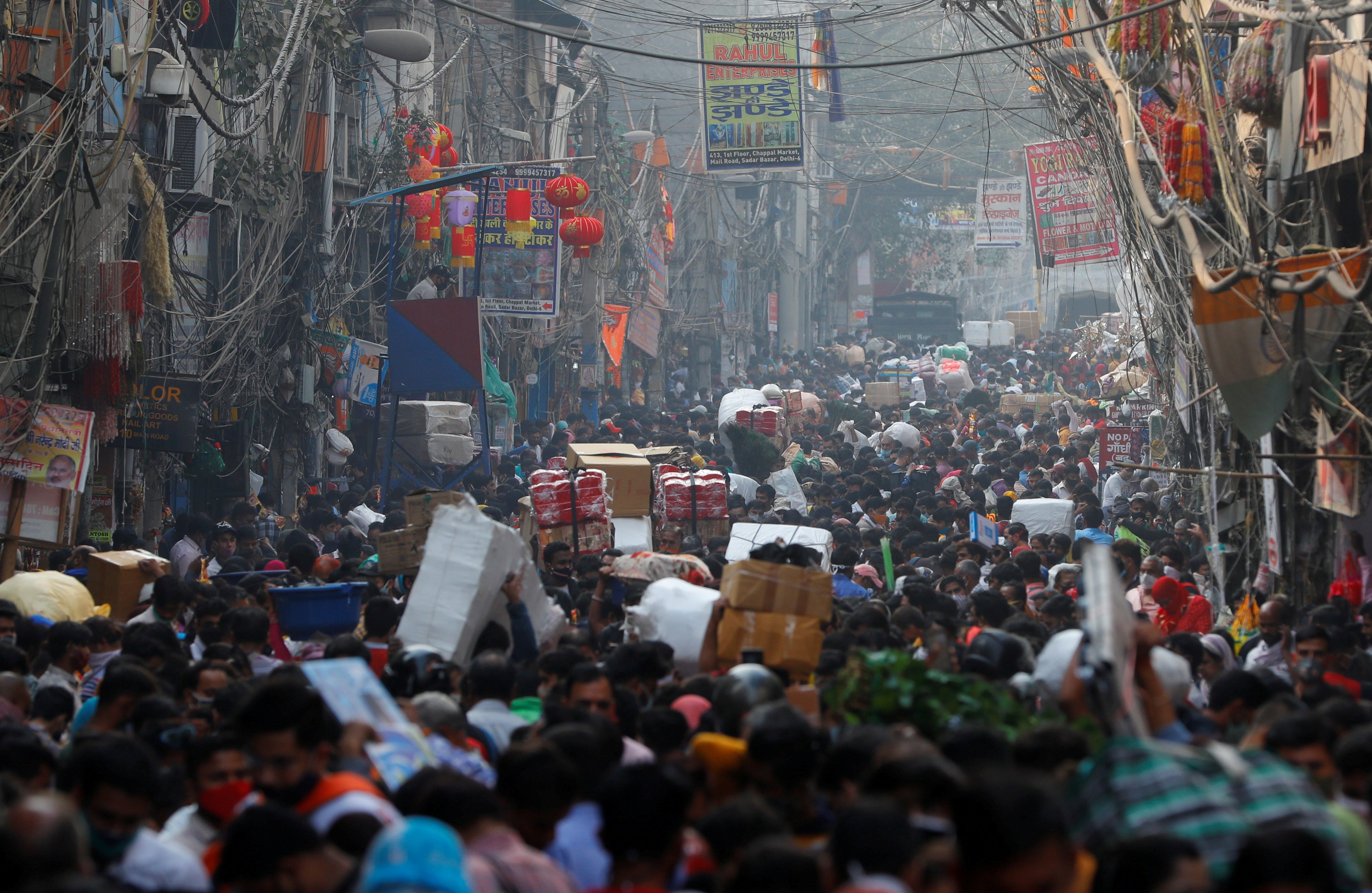Covid cases see big spike in Delhi as pollution levels soar: ‘We’re firefighting’
Air pollution levels have been off the charts this week, triggering emergency measures

Your support helps us to tell the story
From reproductive rights to climate change to Big Tech, The Independent is on the ground when the story is developing. Whether it's investigating the financials of Elon Musk's pro-Trump PAC or producing our latest documentary, 'The A Word', which shines a light on the American women fighting for reproductive rights, we know how important it is to parse out the facts from the messaging.
At such a critical moment in US history, we need reporters on the ground. Your donation allows us to keep sending journalists to speak to both sides of the story.
The Independent is trusted by Americans across the entire political spectrum. And unlike many other quality news outlets, we choose not to lock Americans out of our reporting and analysis with paywalls. We believe quality journalism should be available to everyone, paid for by those who can afford it.
Your support makes all the difference.Coronavirus cases reached an alarming new high in Delhi on Thursday, as experts’ worst fears about a combination of rising smog levels and a second pandemic wave appeared to be realised.
The capital recorded a surge of 8,593 cases, far exceeding the daily infection numbers from the previous peak back in June, when hospitals were overrun and patients in critical condition turned away.
Daily infections in India as a whole have been falling in recent weeks, in a country with the second-highest caseload in the world at almost 8.7 million, but Delhi appears to be bucking that trend as winter temperatures drop and people gather in large numbers for the Diwali festival season.
The health impacts of the Covid-19 crisis in Delhi are being exacerbated by horrendous levels of air pollution. The city’s air quality index (AQI) has been in the “severe” category for more than 48 hours this week, triggering emergency measures that include a ban on construction.
And the Delhi High Court has felt compelled to step in and order the authorities to take the coronavirus situation seriously as well, amid widespread failures to observe mask wearing rules and social distancing guidelines.
A senior health department official admitted the city was struggling to cope, with no respite in sight and Diwali, on Saturday, looming on the horizon.
"We are firefighting because Diwali is looking like a super spreader event in front of us and the public just doesn't see the threat,” the official, who did not want to be named, told the Reuters news agency.
Intensive care facilities in the city, essential for treating the most severe Covid-19 cases, are in such short supply that some hospitals are squeezing more beds into existing wards ahead of the weekend.
The risk is not just from families, friends and neighbours gathering for Diwali itself. Markets selling treats and gifts have been booming amid a steady relation of lockdown measures.
The winter wedding season is also approaching, with a series of dates seen as auspicious in astrological calendars falling close together and expected to see thousands of large weddings taking place right across the country.
The government-run Indian Council of Medical Research says the recent fall in cases nationally could be undone if there is a resurgence in infections around Diwali.
Narendra Modi’s union government has asked Delhi’s authorities to brace to handle as many as 15,000 new cases a day and to step up testing.
Over half of the city's 16,511 Covid hospital beds were occupied as of Wednesday, government data showed, with more than 24,000 other patients isolating at home. There is no separate data for beds on intensive care wards.
All ICU beds at Sir Ganga Ram Hospital, one of the top private hospitals in the city, are now occupied, said Dhiren Gupta, a senior pulmonologist.
In the government-run Ram Manohar Lohia Hospital, doctors have packed beds into ICU wards to the closest permissible limit.
"We have increased the number of beds but there are limitations of distancing and ventilation," said Desh Deepak, a senior pulmonologist. "We're operating at almost full capacity in ICUs."
Varunn Kaushik told Reuters he tried taking his 92-year-old grandmother to two top private hospitals on Monday after she started coughing and her blood oxygen levels plummeted, but neither would take her even after she was found positive for Covid-19.
He finally admitted her to a non-ICU bed on a Covid ward in a government hospital, 10 hours after leaving home, where her condition was stable as of Thursday.
But the experience has left Mr Kaushik worried about himself and the rest of his family, as they wait to get tested for the coronavirus themselves.
"God forbid, if anyone else needs hospitalisation... what would happen two days down the line?" he said. "That is even more scary.”
Additional reporting by agencies




Join our commenting forum
Join thought-provoking conversations, follow other Independent readers and see their replies
Comments